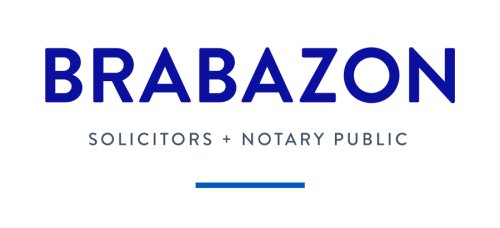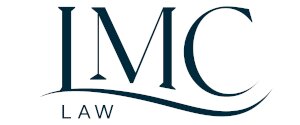Best Private Client Lawyers in Dublin
Share your needs with us, get contacted by law firms.
Free. Takes 2 min.
List of the best lawyers in Dublin, Ireland
About Private Client Law in Dublin, Ireland
Private Client law in Dublin, Ireland focuses on providing legal advice and solutions to individuals and families regarding their personal and financial matters. This area of law encompasses issues such as wills, probate and estate administration, trusts creation and management, tax planning, asset protection, incapacity planning, and guardianship arrangements. Solicitors in this field support clients through important life events and ensure their wishes are appropriately recorded and enforced under Irish law. The goal is to protect wealth, secure future interests, and give peace of mind regarding personal and family affairs.
Why You May Need a Lawyer
There are several scenarios where consulting a Private Client lawyer in Dublin is beneficial. Common situations include:
- Drafting or updating a will to ensure your assets are distributed according to your wishes
- Administering a deceased person's estate, including obtaining probate and settling debts or taxes
- Establishing trusts for children, dependents, or charitable purposes
- Implementing tax-efficient strategies to manage your wealth for future generations
- Appointing a power of attorney in the event you become unable to manage your affairs
- Resolving disputes regarding inheritance or contested wills
- Protecting assets from potential creditors or relationship breakdowns
- Making arrangements for minor or vulnerable family members
- Understanding your obligations and rights under Irish succession laws
- Advising on cross-border estates and foreign assets or beneficiaries
Local Laws Overview
Private Client law in Dublin operates within the broader framework of Irish legislation and regulations. Key aspects include:
- The Succession Act 1965, which governs wills, intestacies (where someone dies without a will), and rights of spouses and children
- Inheritance Tax rules, known as Capital Acquisitions Tax, which outline the thresholds and rates for taxes on gifts and inheritances
- The rules relating to Enduring Powers of Attorney (EPOA), which permit individuals to designate someone to make decisions if they lose mental capacity
- The role of the Probate Office in granting authority to administer estates
- Regulations surrounding trusts, including their creation, management, and taxation
- The Family Home Protection Act, offering protection for family homes in estate planning
- The concept of 'forced heirship', requiring a portion of an estate be reserved for spouses and sometimes children
- Charitable giving rules, if you wish to leave money to charity
Complying with these laws is vital to ensure your affairs are managed legally and efficiently, and a knowledgeable solicitor can help you navigate these complexities.
Frequently Asked Questions
What is probate and why is it required?
Probate is the legal process for validating a deceased person's will and giving authority to the executors named in the will to administer the estate. It also deals with distributing assets according to the will or, if none exists, by intestacy rules. Probate is required to ensure the deceased’s assets are dealt with lawfully.
Do I need a solicitor to make a will in Dublin?
While it is possible to draft a will without legal assistance, hiring a solicitor ensures it is valid, clear, and structured to avoid future disputes. A solicitor can also advise on tax planning and compliance with Irish succession laws.
How is inheritance tax calculated in Ireland?
Inheritance tax, or Capital Acquisitions Tax, is calculated based on the relationship between the deceased and the beneficiary, with specific thresholds and a standard tax rate. Assets above the threshold are taxed at a fixed rate, currently 33 percent.
What happens if someone dies without a will?
If a person dies intestate, their estate is distributed according to Irish intestacy laws. These laws outline a strict order of priority for beneficiaries, usually starting with spouses, children, and then extended family if necessary.
What is an Enduring Power of Attorney?
An Enduring Power of Attorney (EPOA) is a legal document that allows you to appoint someone you trust to manage your affairs if you become mentally incapacitated. It comes into effect only once registered after incapacity is confirmed.
How can I protect a family member with special needs?
You can establish a trust, such as a discretionary trust, to provide financially for a family member with special needs. This ensures appropriate care and financial management while potentially offering certain tax advantages.
Can a will be contested in Ireland?
Yes, a will can be contested on grounds such as lack of capacity, undue influence, or improper execution. Children and spouses may also make claims under the Succession Act if they believe proper provision was not made for them.
What should expatriates or non-residents know about Irish estate planning?
If you are an expatriate or have assets abroad, you should seek legal advice on the impact of Irish succession law and possible double taxation or conflict of law issues. Specialist advice ensures your estate plan reflects both Irish and international considerations.
What documents should I prepare before meeting with a Private Client lawyer?
Key documents include any existing wills, a list of assets and debts, family information, property deeds, life policies, and a record of wishes for distribution. Having this information ready ensures a productive meeting.
Are there restrictions on who can be an executor or trustee?
An executor or trustee must be over 18 and mentally capable. It is common to appoint family members, friends, or solicitors in these roles, and some may require professional or independent involvement for complex estates or trusts.
Additional Resources
If you need guidance on Private Client matters in Dublin, the following resources may be helpful:
- Citizens Information - Offers basic advice and information on wills, probate, and enduring powers of attorney
- The Law Society of Ireland - Provides a database of accredited solicitors and information on choosing a legal professional
- Revenue Commissioners - Publishes official guidance on inheritance tax rates, thresholds, and reporting requirements
- The Probate Office - Manages all probate applications and supplies guides on their processes
- Age Action Ireland - Supports older persons with information on planning for the future
- The Courts Service of Ireland - Publishes procedural information about wills and contentious matters
Next Steps
If you are considering making a will, facing probate, require tax planning, or wish to set up trusts or powers of attorney, your next steps should be:
- Clarify your goals and gather relevant personal and financial information
- Seek the assistance of a reputable Private Client solicitor experienced in Irish law
- Schedule an initial consultation to discuss your needs and receive tailored legal advice
- Prepare any questions or concerns you have to make the meeting as productive as possible
- Review all proposed documents carefully and ensure you understand every step before signing
- Keep your arrangements under review and update them as your circumstances change
Taking early and informed action with the guidance of a qualified Private Client lawyer ensures your wishes are respected, legal requirements are met, and your loved ones are protected.
Lawzana helps you find the best lawyers and law firms in Dublin through a curated and pre-screened list of qualified legal professionals. Our platform offers rankings and detailed profiles of attorneys and law firms, allowing you to compare based on practice areas, including Private Client, experience, and client feedback.
Each profile includes a description of the firm's areas of practice, client reviews, team members and partners, year of establishment, spoken languages, office locations, contact information, social media presence, and any published articles or resources. Most firms on our platform speak English and are experienced in both local and international legal matters.
Get a quote from top-rated law firms in Dublin, Ireland — quickly, securely, and without unnecessary hassle.
Disclaimer:
The information provided on this page is for general informational purposes only and does not constitute legal advice. While we strive to ensure the accuracy and relevance of the content, legal information may change over time, and interpretations of the law can vary. You should always consult with a qualified legal professional for advice specific to your situation.
We disclaim all liability for actions taken or not taken based on the content of this page. If you believe any information is incorrect or outdated, please contact us, and we will review and update it where appropriate.
Browse private client law firms by service in Dublin, Ireland
Dublin, Ireland Attorneys in related practice areas.














